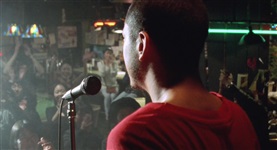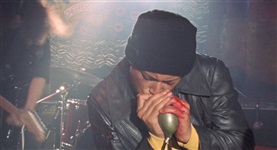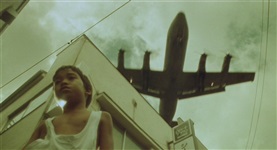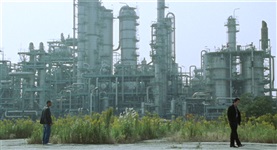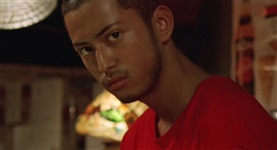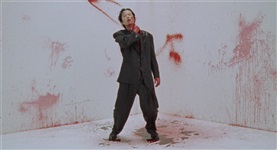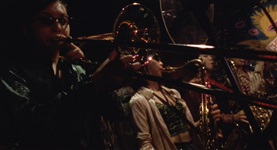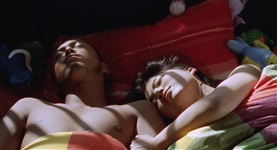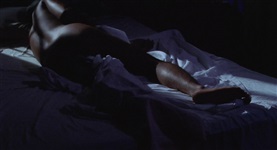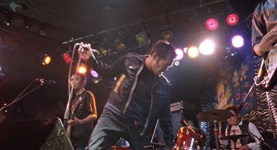Blues Harp (1998)
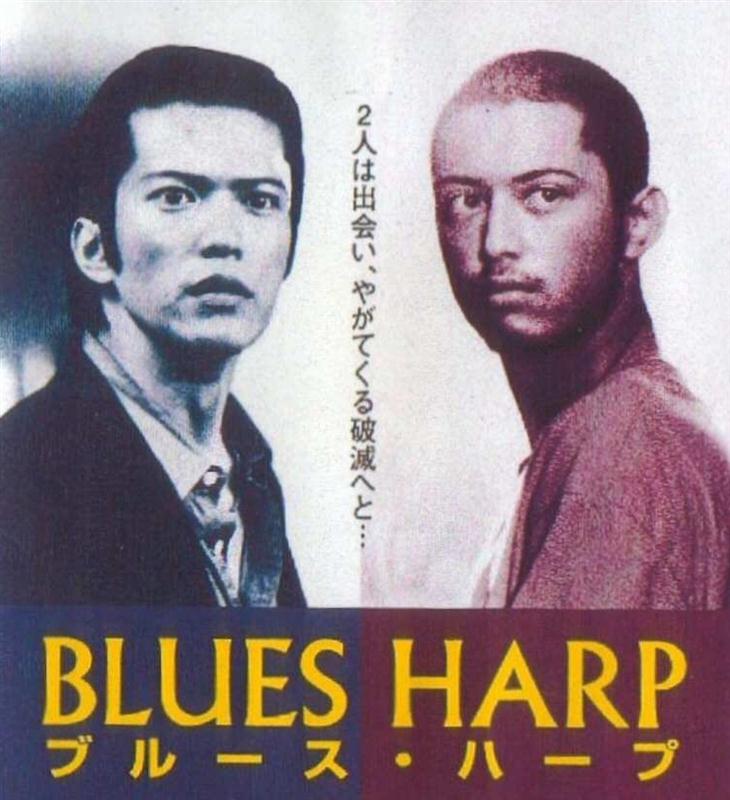
BLUES HARP tells the story of a young half-caste orphan named Chuji, who works in a bar, sells a little bit of speed on the street and sometimes plays blues on his harmonica. A chance encounter one night introduces Chuji to an ambitious young Yakuza called Kenji and a young girl called Tokiko, and the effects of the relationships he forms with them form the basis of the movie.
This is one of Miike's more low key character driven films, inhabiting similar territory to Ley Lines or Rainy Dog. I guess it's technically a Yakuza movie but it probably spends more time on the bands that play in the bar than it does on gangsters. It explores Miike's favourite subject at the time, characters of mixed ethnicity pushed to the fringes by Japanese society. Chuji never knew his father, presumably an American serviceman, and was abandoned by his mother when he was young. He doesn't know where he belongs and has little direction in his life until his chance meeting with Kenji and Tokiko gives him one.
Tokiko is enigmatic, seemingly a simple soul who and commits easily and enthusiastically to Chuji. Kenji is far more complex, driven by a need to prove himself that makes him both ruthless and reckless. Chuji is seemingly the only person in his life that isn't a pawn in his ambitions, somebody he admires - and is attracted to. The performances by the trio are all excellent, but Hiroyuki Ikeuchi leaves an especially strong impression as Chuji, it's hard to imagine a more perfect fit for the character.
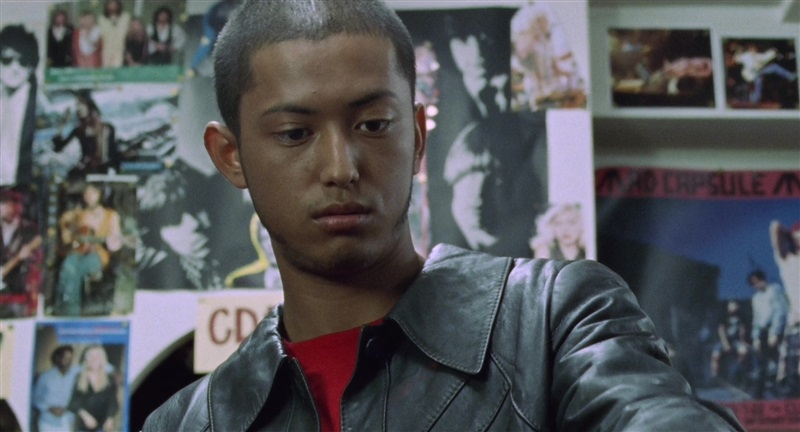
Miike's growing maturity as a director is evident here, with a measured pace that builds up the story gradually by drip feeding information. Dialogue is kept to a minimum - if Miike doesn't need to explicitly tell us something, he doesn't. Usually a facial expression or a carefully chosen camera angle is all he needs. There are a lot of incidental scenes whose function is to develop the characters and ambience, much of which comes from the live performances.
There is some creative camera work and editing. particularly in the opening scene which features a rousing performance of a punk rock song intercut with flashes of a Yakuza battle happening concurrently, a sort of montage that predicts the legendary intro to DEAD OR ALIVE to some degree (though it's not nearly as gonzo). A Takeshi Kitano influence can be felt on the film's style, and in places he seems to be channelling Wong Kar-Wai as well - particularly in one scene that uses Wong's signature step printing technique to create a pseudo-slomo effect.
BLUES HARP doesn't offer many of the WTF moments that Miike is best known for, but it is carefully crafted, beautifully filmed and has a lot of depth. It's one of the films that proves that Miike's talents extend far beyond being a purveyor of controversy and shock. It's a shame he doesn't make films like this anymore.
Cast
Crew
| Director | |
|---|---|
| Writer | |
| Producer | |
| Cinematographer | |
| Soundtrack | |
| Editor | |
| Assistant Director |
